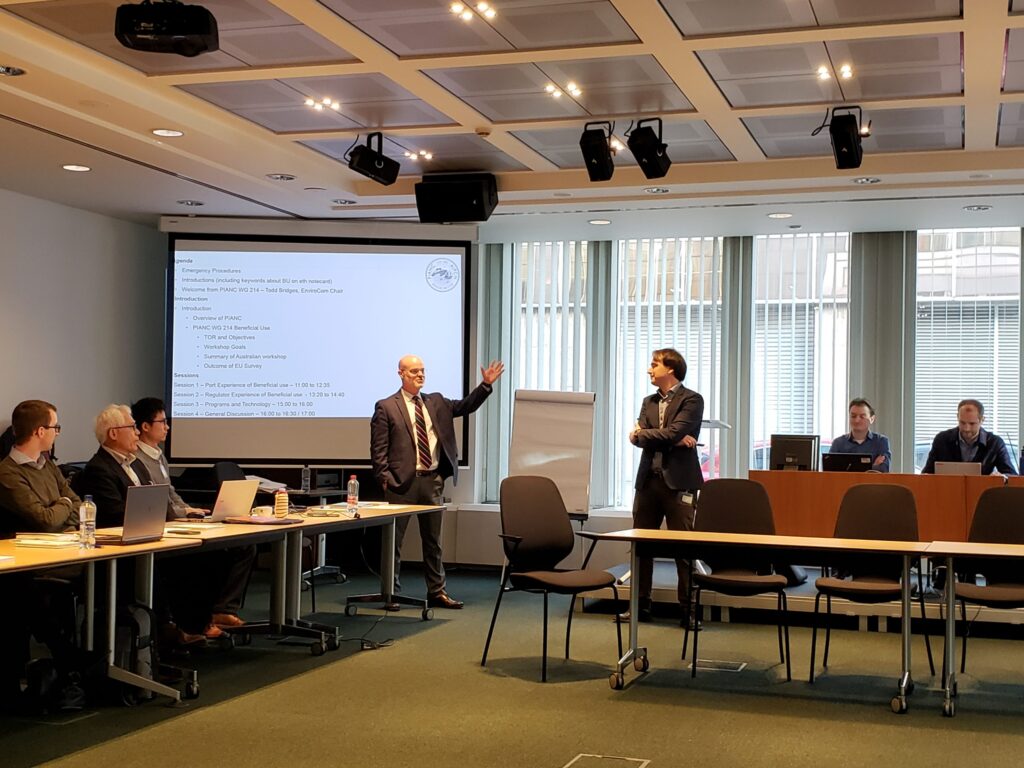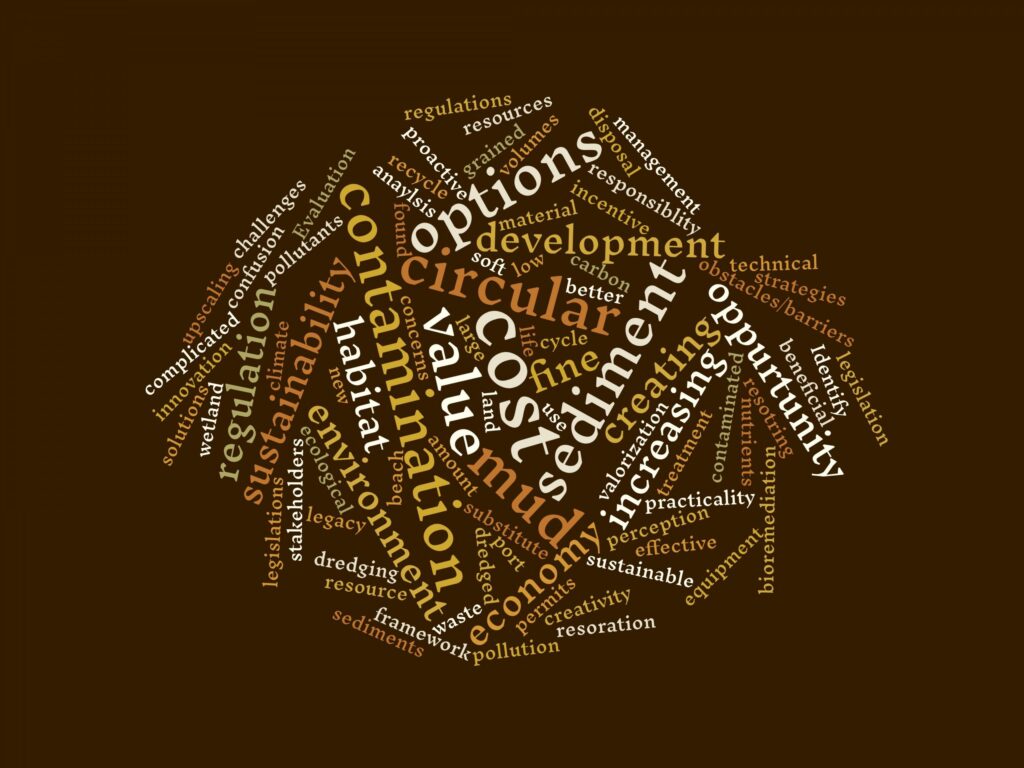On 30 January 2020, the PIANC EnviCom Working Group 214 (WG214) on Beneficial Sediment Use convened a workshop of 35 participants that focused on the opportunities and barriers to Beneficial Use with focus to North Europe. In addition to the global representation brought be the WG214, participants came from across Europe with perspectives from as far as Dubai. Presentations gave the perspective of the dredging, regulatory, technology, and program communities. This event followed the similar workshop organized in Brisbane in October with focus on the Australian Region. The WG will publish a PIANC report in early 2021.

Pictured: Dr. Todd Bridges (USACE – EnviCom Chair), and Luca Sittoni (EcoShape and Deltares – WG214 Co-chair) give the workshop its charge: (1) How can we move beneficial use to the first option and not as an alternative?; (2) How can we streamline beneficial use?; and (3) how can we establish the environmental, economic, and social benefits of beneficial use over project lifecycle?
Annually, billions of cubic meters of material are dredged globally to maintain ship movement for commerce and recreation. Navigational maintenance is integral to the world economy, without which the transport of cargo, large cruise ships, and pleasure craft could not function. With dredging comes a need to manage dredged material. Today, many constraints pose challenges to the beneficial use of dredged material due to concerns over impacts to surface waters, displacement of aquatic habitat, or the release of contaminants into the environment. These growing constraints and societal needs motivate the development of innovative and sustainable alternatives, including identifying beneficial uses for sediment to increase value regarding economic, social, and environmental benefits. Yet, sediment is a valuable, often scare, resource in the context of sustainable development and climate adaptation. Beneficial use is naturally aligned with sustainability, life-cycle analyses, and circular-economy frameworks. Shoreline environments benefit from a system-wide evaluation of sediment dredging and dredged-sediment applications, where dredged sediment is viewed not as waste and instead is valued resource for raw material to maintain hydrological, ecological, and economic conditions. Sediments can be beneficially used to e.g. counteract coastal erosion, provide locally produced building material to raise dikes, re-establish wetlands or natural habitats, and reclaim land.

Pictured: Presenters participate in a panel discussion with questions from workshop participants, chaired by Thomas Vijverberg, Boskalis – WG214. Panelists gave their perspective on beneficial use and discussed challenges and opportunities with the workshop participants.
The objective of WG214 is to provide technical information and guidance regarding the state of the practice for sediment use as a beneficial resource, drawing from existing approaches and best practices. WG214 is developing a report that will consider and evaluate the following: Concepts of sediment use and existing scientific knowledge related to different uses; sediment contamination and how contamination can constrain sediment reuse alternatives; and cost-benefit and ecosystem-services frameworks to understand how the value of different reuse options can be quantified, and compare different beneficial use alternatives and compare those alternatives to the status quo. The report will give an overview of global sediment beneficial use practices, technologies, regulations, and limitations. Case studies will be presented to illustrate recent successes and challenges associated with the beneficial use of dredged material. Beneficial use must be framed in the context of LC/LP and OSPAR legislations, and the report will link to relevant reports published by PIANC, the Central and Western Dredging Associations (CEDA and WEDA), the International Association of Dredging Contractors (IADC), and the European Sediment Network (SedNet), among others.

Pictured: Word cloud of what beneficial use means to you. Each participant was asked to write down the three words that they think of when hearing the term beneficial use.
